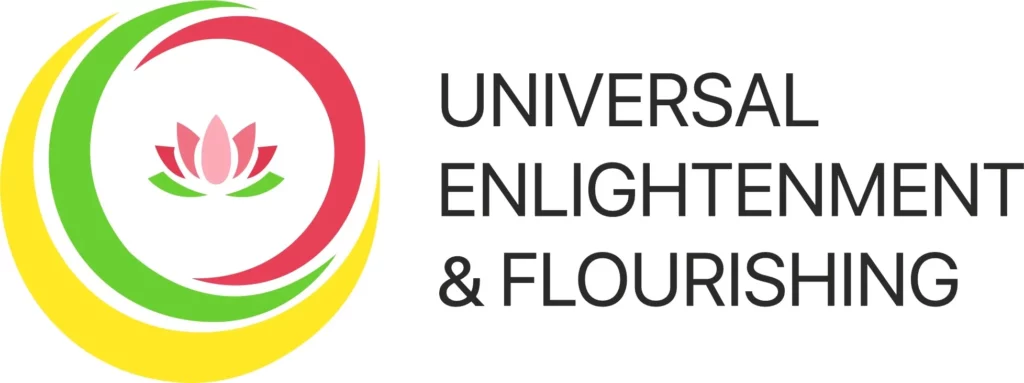In a world where differences often lead to discord, the essential message of oneness in various religions stands out as a beacon of hope and unity. This concept of oneness isn’t just a superficial aspect of religious teachings but is deeply embedded in the ethical frameworks that guide human behaviour towards peace and understanding.
The Universal Quest for Meaning
Throughout history, humanity’s quest for meaning has often manifested through the diverse paths of religion. Each tradition provides its followers with unique narratives and practices yet converges on a common goal: the search for truth and the understanding of life’s deeper meanings.
Insights from Religious Texts
- Christianity: “Compassion is the keen awareness of the interdependence of all things.” — Thomas Merton, Catholic monk
- Judaism: “Hear, O Israel, the Lord is our God, the Lord is ONE.” — Deuteronomy 6:4, Hebrew Bible
- Islam: “The Muslims are like a single man. If the eye is afflicted, then the whole body is afflicted.” — The Prophet Muhammad
- Baha’i: “Ye are all the leaves of one tree and the drops of one ocean.” — Bahá’u’lláh
- Buddhism: “Before we were born we had no feeling; we were one with the universe.” — Shunryu Suzuki
- Taoism: “We are interconnected with all things—plants and animals, heaven and earth.” — The Book of Lieh-tzu
- Confucianism: “All things are nourished together without their injuring one another.” — The Doctrine of the Mean
- Hinduism: “Established in oneness with me, one who beholds me as present in all beings, that yogi resides within me, in all circumstances.” — The Bhagavad Gita (6:31)
Swami Ramakrishna, a revered Hindu monk, once said, “So many religions, so many paths to reach the same goal. I have practiced Hinduism, Islam, Christianity, and in Hinduism again the ways of the different sects. I have found that it is the same God towards whom all are directing their steps, though along different paths.” This perspective is not just a philosophical stance but a profound acknowledgment of the ethical underpinnings shared by all faiths — a commitment to the pursuit of truth and the promotion of peace.
Ethical Dimensions of Religious Oneness
Embracing Diversity within Unity
Growing up in the vibrant and diverse setting of Old Delhi, I was early exposed to the myriad ways people worship and live out their faith. This diversity, rather than being a source of division, became a foundation for a deeper understanding that, although our paths are different, our destination is much the same. This realization echoes the ethical principle found in Christianity, as stated by Paul the Apostle in Galatians 3:28, “There is neither Jew nor Greek, slave nor free, male nor female, for you are all one in Christ Jesus.”
Cognitive Dissonance and Spiritual Growth
My journey from a traditional Hindu upbringing to studying engineering introduced me to a more analytical way of thinking. This shift caused a cognitive dissonance with some of my earlier beliefs, pushing me to explore my faith more deeply. This exploration was not a rejection of Hinduism but an expansion, seeing the scriptures through a metaphorical lens, which is a step towards universal understanding. The Bhagavad Gita reflects this when Krishna speaks to Arjuna about the impermanence of the physical and the eternity of the soul, urging him to look beyond surface differences.
The Concept of ‘Religious T Individuals
During my studies at Harvard’s Advanced Leadership Initiative, I learned the importance of depth and breadth in education. Harvard aims to develop ‘T’ shaped individuals — deep in one area but capable of connecting across multiple disciplines. Applied to religion, this model encourages deep practice of one’s faith while fostering an understanding and appreciation of other beliefs, thus promoting an ethical framework of mutual respect and unity.
Bridges Across Humanity: Understanding Common Themes
In my book, “Bridges Across Humanity,” I explore 54 themes common across world religions, demonstrating that our beliefs are interconnected and more similar than they are different. By examining one theme at a time, the book offers a fresh perspective, breaking the silos that often segregate religious teachings in academia and in practice.
Moving Beyond Exclusivity
The tendency to focus on the particularities and exclusivities of religions can be counterproductive. It leads to a mindset of division rather than unity. Acknowledging common themes across religions can dissolve barriers and foster a more inclusive approach to spirituality, which is essential in our increasingly interconnected world.
Conclusion: The Ethical Imperative of Oneness
The message of oneness in religion is not just a call for spiritual unity but also a deeply ethical command to live in harmony with all. It challenges us to transcend our differences and work together towards a common good, respecting and learning from each other’s paths. In this light, every religion contributes to the shared human endeavour of making our world a more understanding and compassionate place.
As we continue to navigate the complexities of global diversity, let us remember the ethical core of our shared spiritual heritage — the oneness that binds us all in our quest for truth and peace. By embracing these principles, we can truly become more authentically religious and show unconditional love towards every individual we encounter.


